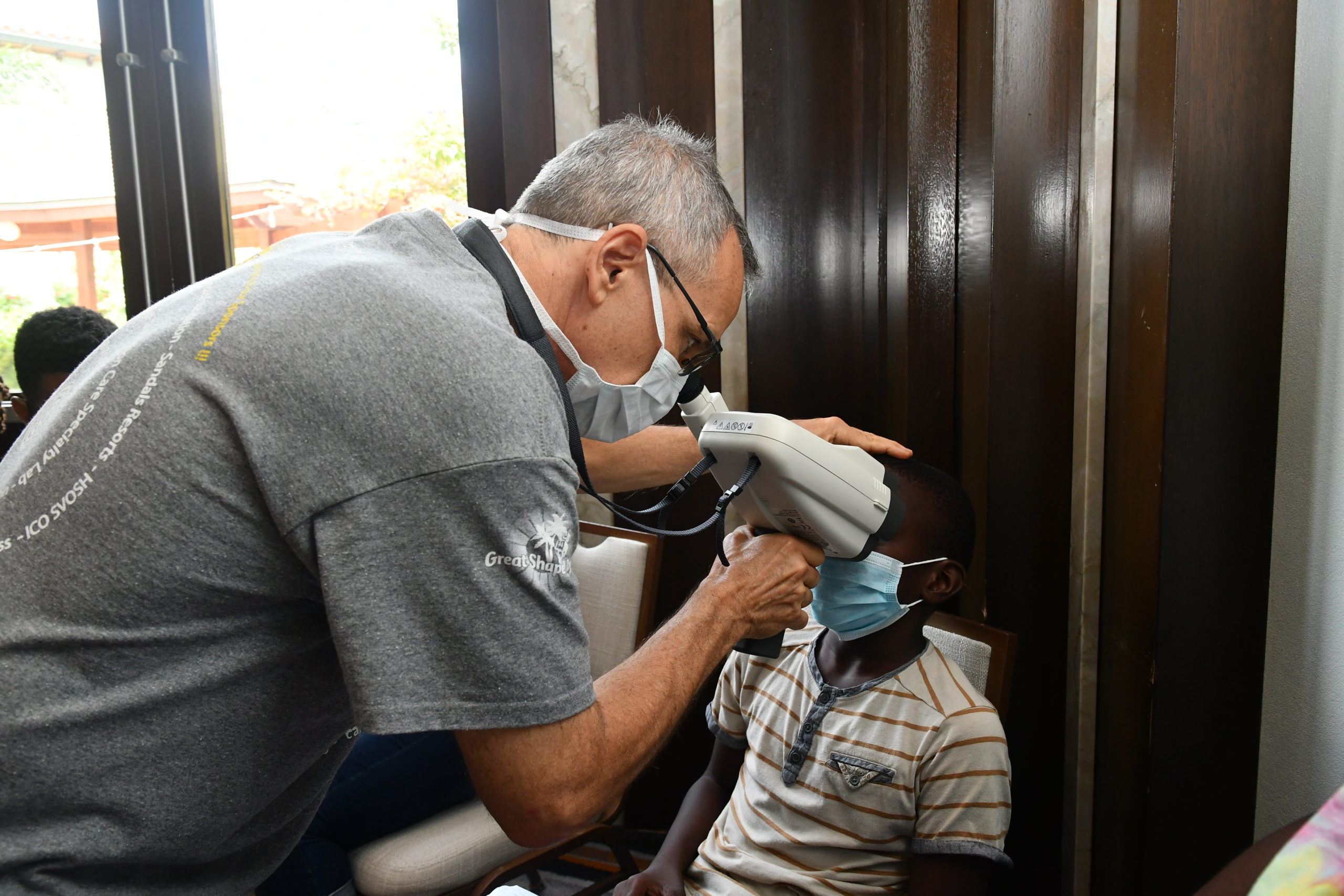We reported last week on the success of the Sandals Foundation initiative in partnership with the iCARE team which saw hundreds of Barbadians lining up to take advantage of the free eye care on offer.
They got their eyes tested and glasses provided free of charge through Great Shape Inc.
In some instances, persons who turned up at 6 a.m. for the 8:30 a.m. opening found that they were late as others had arrived in the wee hours of the morning – from as early as 2 a.m.
One of our letter writers this week made an observation that we find very telling. The author wrote in part: “I was one of the many who lined up for hours to get their eyes checked at the health initiative recently organised by Sandals. Kudos to the resort for its timely outreach for the benefit of persons who might be having issues with their vision.
“But it was not lost on me that many of the people there could have been there as a result of inadequate care and attention from medical personnel at home. I am speaking from personal experience as I have been waiting for an eye operation for two years and do not seem any closer to getting it. The doctor here keeps giving me different appointments, with the latest now pushed to next year. I wonder if some of these doctors who work for government facilities also have their private practice and are frustrating patients into seeking private care.”
The story above is that of many Barbadians. Stories are told of patients waiting up to five years for eye surgery, especially as it relates to cataract.
In a country that records a high number of diabetic patients per year, one would think that eye care would be a priority since cataract, retinopathy and other eye ailments are linked to the chronic disease.
Then there are conditions such as keratoconus which affects vision and costs up to $10 000 to correct, in one eye, here in Barbados.
Week after week, patients flock to the Lion’s Eye Care Centre in hopes that this will be their lucky week for surgery. They go to the appointment, get a time and date for a future appointment without any real progress or effort made to address the problem.
Veteran journalist and broadcaster David Ellis also spoke about the issue while on the Down To Brasstacks call-in programme on Voice of Barbados. He said he received reports that more than 300 people were in attendance for the free eye clinic and claimed that someone told him the Government should see this overwhelming response as proof that Barbados needs more eye clinics; at least four were proposed.
Ellis responded by saying: “This is an area where you hear Barbados is a place where you can get this and get that, but try to get it sometimes. The kind of stress that some people have to go through just to get that kind of public attention is immense. Because the system does not work as efficiently as it ought to. So, therefore, if there is this rush to see these ophthalmologists, the question that we should be asking is, ‘why is this happening? And what can be done to address it?’
“But there is another question we need to ask: How many people can’t see because they can’t get to the ophthalmologist that would normally be available in the polyclinic and the public health system? Of course, we don’t get these details. This kind of information is not available to the public. My question is, shouldn’t it?”
We are at a juncture in Barbados where most things are politicised and persons get very defensive – sometimes offensive – if one has to highlight when systems are not functioning as they should, or that individuals ought to do more than they do. Everything is expensive in Barbados but often, as it relates to healthcare, neglecting one aspect of our health puts us on an even more expensive road.
Dealing with health issues with a certain degree of urgency can lead not only to preventing bad situations becoming worse and saving lives, but also reducing costs significantly. There is someone in perhaps every nook and cranny of Barbados who can give testimony of having a situation deteriorate because it was not dealt with dispatch by the individual or institution from whom assistance was sought.
Professionals charged with the responsibility of providing healthcare must listen and be sensitive to the complaints of those who seek them out for assistance. We are at our most vulnerable when we are afflicted by some infirmity and, thus, attention must be paid to the frustrations of people who write to newspapers about five-year-old medical dilemmas, or those who park in cars from 2 a.m. to later queue at a doctor’s office that opens at 8:30 a.m. Desperation is so very easy to identify.




